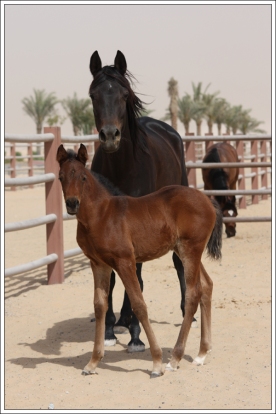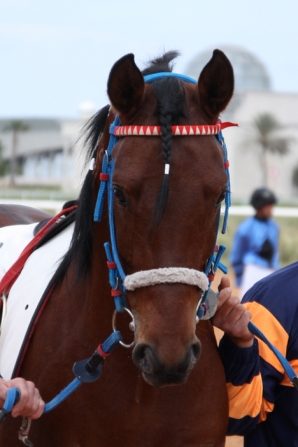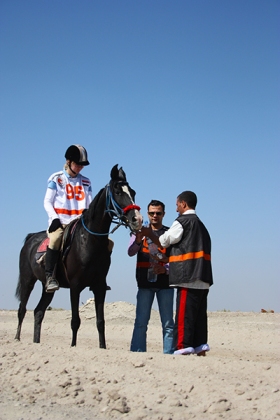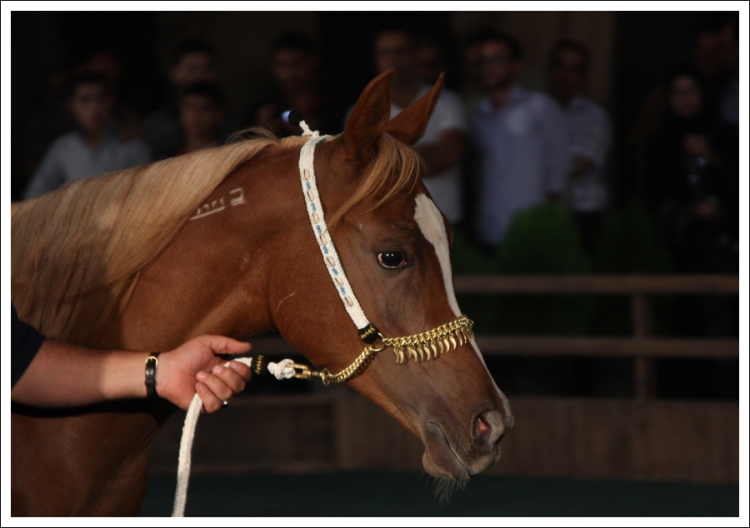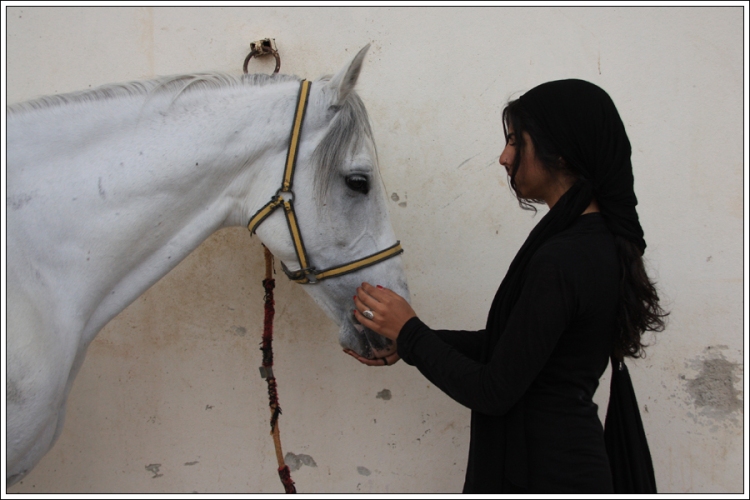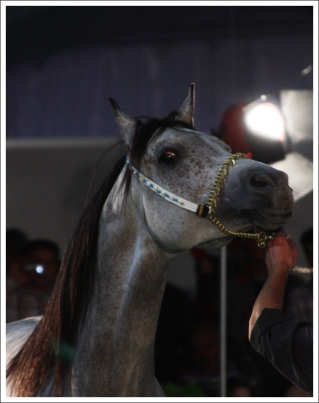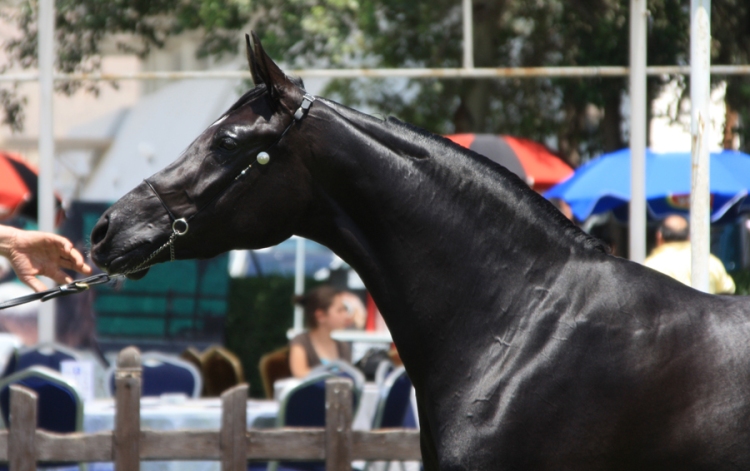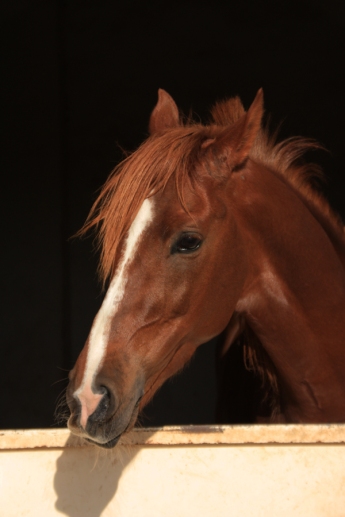Many owners and breeders of Arabian horses wish to give their horses Arabic names. This is a nice thought, and I applaud those who wish to carry on the Arabic naming tradition. However, it is not necessarily easy to pick an appropriate name for your animal when you do not speak the language. Even when you do, you may not be familiar with how the Arabs name their own horses in the Middle East. I often see the results of well-meaning owners who try to pick out a nice name in Arabic for their foal. They usually make me wince. I therefore write this blog in an attempt to help the amateur breeder avoid the most common mistakes when naming their horses.
1. What is an appropriate name?
Or rather, what is not. Not all names are appropriate for a horse. I am not saying that people should copy the Arab horse breeders in every aspect, but it could be useful to have an idea of what sort of names horses are given in the Arab world, and what names should not be used on a horse. I have to admit straight away that I have not had the chance to do as much research as I would have liked to on Arabic horse names. My experience stems from my stays in Syria, where I came to know many horse people and their horses; from what little I have gleaned on the subject while reading old texts in Classical Arabic; and of course from my knowledge of the Arabic language, Arabic culture and history and from common sense.
First of all, do not be tempted to choose a name from this list. These are the 99 names/epithets of God found in the Qur’an. It should go without saying, but I say it anyway: These are not appropriate names for a horse. Some of them could work, if you remove the definite article, like for instance Malik (meaning king), or Nūr (meaning light). But just to be safe, keep clear.
Second, try to avoid using people’s names. Ali, Hasan, Khadija, Aisha… you will not find horses named in this manner in the Arabic speaking world. However, some names seem to work on humans and horses alike, such as names that are really words for animals. Haytham (lion), Fahad (panther) et cetera are examples of this. Names of flowers and trees and things found in nature seem to be OK, as are names of ancient and/or literary heroes like Antar, Qahtan, Rustam et cetera.
Third, I have to bring this up, because I keep getting requests, especially from younger women and girls, to translate words into Arabic that are just useless as far as names go. You are obviously free to name your horse whatever you want, but if you do want a name in Arabic, please take some time to consider the Arabic traditions before you get all carried away. Horses simply aren’t called things like ‘‘Unique Emerald’’, ‘‘Sparkling Diamond’’ or ‘‘Shining Red Mysterious Traveller in the Night’’ in Arabic. (In fact, I am quite sure that there is no one word for ‘mysterious traveller in the night’ in the Arabic language). An Arabian horse generally has one given name. That’s it. Many horses have a sort of surname, that is usually the stud name, which can take this form: Burkan al-Zaeem. Burkan (volcano) is the name of the horse, al-Zaeem is the name of the stud where he was born. The second part can also be the name of the breeder or the owner, or it can be something that describes the horse, like al-Sagheer; the small. A general rule here is: keep it simple, stay away from people’s names and anything religious, and try to avoid adding adjectives. One name is usually enough.
2. Mind your grammar
The Arabic language is rich in grammar. However, you need not become the new Sībawayhi in order to find a good name for your horse. You mostly just need to be aware that the Arabic language is gendered. That means that nouns are either masculine or feminine, and that adjectives are declined in accordance with the gender of the noun. Grammatical gender does not always correspond with natural gender. However, this also means that many names can work for both colts and fillies if you just conjugate them properly. An example is Mahboub, meaning ‘beloved’, which is a colt’s name. Change it to Mahbouba and you can use it on a filly.
Nasab: In Arabic naming tradition, the nasab is a patronymic. Most people are already familiar with this concept. For a male you write ibn and the father’s name, for a female the word is bint. I would just like to clarify one thing: ibn and bint in and of themselves mean only ‘son’ or ‘daughter’ respectively (bint is sometimes in the sense of ‘girl’). However, in a construction together with a given name, they mean ‘son of’ and ‘daughter of’. People in the Arab world do not normally use their patronymics much today, except in formal settings. However, they are quite widely used for horses, which is just fine. A horse may be named ‘‘Ibn/Bint Fulān’’ (fulān here meaning any name, please do not actually use that word in a horse’s name), or it may be given a ‘proper’ name as well: ‘‘Fulān ibn Fulān’’. Concerning the spelling of ibn, you may have noticed that it is sometimes spelled bin. This is because of how it is pronounced in Arabic when there is a word in front of it. It is pronounced /ibn/ whenever it begins a sentence, and /bin/ whenever it follows another utterance. In writing, you should spell it ibn, because you cannot really go wrong with that spelling, and also because it is less likely to be confused with bint that way.
Kunya: A kunya is a sort of nickname widely used in the Arab world. It normally consists of abu or umm plus the name of that person’s firstborn child (or firstborn son); abu meaning father and umm meaning mother. The parents of Ahmad would thus be known as Abu Ahmad and Umm Ahmad. It is usually polite to address someone, and especially women, by their kunya rather than by their given name (ism). Even those who do not yet have children can have a kunya, given lovingly by friends and family. The second part of the kunya in those cases can be a diminutive (pet form) of their given name, or their father’s name, or it could come from a special attachment to an individual or a thing, like Abu Bakr: bakr means a young camel. Kunyas could be good names for horses, although it is of course difficult to give a name based on an offspring that does not yet exist. I have seen horses with kunya names, more or less successful so, but theoretically they could work.
A note on colours: You will know that colour names in Arabic are spelt very differently according to gender. The masculine names are quite straightforward, while the feminine ones can be difficult both to spell and pronounce for non-speakers. I have yet to see or hear of a horse named after its colour from the Middle East. I am not saying it does not happen, it very well might. In any case, do be careful when looking up colour names in Arabic if you want to include such a word in your horse’s name. Names of horse colours do not always match colour names in general. The colour chestnut/sorrel is called ashqar/shaqraa in Arabic. Bay horses are called ahmar/hamraa – this word otherwise means red in daily language. A black horse is technically known as adham/dahmaa, whereas the most common word for black (aswad/sawdaa) also sometimes occurs. A grey horse is called azraq/zarqaa, a word that means blue in general life. There are several words for grey nuances, but everyone knows it is silly to name a grey horse after its colour on a certain day – six months later it will have changed the colour anyway! There is a word for brown or dark bay; kumayt, but in Syria most of those horses were just called ahmar anyway. I personally do not think these horse colours make good names. They are very generic and sound a bit silly. However, if a chestnut or a bay is a fiery red colour, perhaps an epithet like ‘al-Ahmar’ could go well with a given name? Other colour names (not used on horses, at least not today) include ashhab/shahbaa (grey), abyad/baydaa (white), bunnī/bunnīya (brown), akhdar/khadraa (green), asfar/safraa (yellow), wardī/wardīya (pink) dhahabī/dhahabīya (golden), fiddī/fiddīya (silver). But again, Arabian horses are rarely given names including both a noun and an adjective.
If you do wish to give your horse a name including an adjective, please do remember that adjectives in Arabic come after the noun they modify. I have seen a few embarrassing examples of names that simply make no sense at all, grammatically speaking. Should you want to name your horse Golden King (please do not), it is not enough to put two words together. Dhahabī means golden, Malik means king, ‘Dhahabī Malik’ is nonsense. It should be ‘al-Malik al-Dhahabī’, if anything. In my opinion, this is still not a good name, but at least it is grammatically correct.
Genitive constructions! These are a much better option if you want a double name. There are endless possibilities if you know how to use them. In Arabic, a genitive construction like this is called an iḍāfa. It consists of two nouns, the first one without the definite article and the second with it (or at least made definite somehow), but the entire construction is considered definite. The second noun can be a proper noun. Here are some examples: ‘Malik al-Layl’ (king of the night), ‘Wardat al-Sham’ (rose (f.) of Damascus), ‘Ghazal al-Sharq’ (gazelle (m.) of the East) and so on. Many double names in the Arab world resemble these (and are indeed genitive constructions, of course), but the last name is usually that of the stud farm and should be read in this way: ‘Kareemat al-Badr’, Kareema from Badr stud, although badr also means full moon.
3. Transcription (spelling). Romanising Arabic words, i.e. writing them in Latin letters, can easily cause confusion, frustration and headaches! Have a look at the Wikipedia entry. In this blog post (regarding the names at least), I have used a simplified transcription system. This is what I would recommend, because lay people tend to be confused by excessive diacritics, and because the breed organisations in all likelihood do not accept them. There really is no reason why non-speakers should know the difference between ṣād and sīn, ḥāʾ and hāʾ, and so on. I will suggest a simple system for romanisation, in which some Arabic consonant sounds share the same Latin character, and a few can be omitted completely. Arabic only has three vowel sounds; a, i and u, though they exist both as short and long vowels. Now, how you want to
transcribe/romanise a name may depend on where you live and what language you speak. Native English speakers will normally be able to pronounce for instance ‘al-Jazeera’ quite correctly when it is transcribed like that. In my native Norway, the <j> and the <ee> sometimes confuse people into pronouncing it /al-ya-SEH-ra/. (Don’t do that). Teaching you how to pronounce Arabic letters would make this blogpost too long (it is already borderline), but have a look at Omniglot and this Wikipedia section. The latter has many sound useful sound clips. Here is a simplified transcription one might use for naming purposes.
Unfortunately, I cannot provide a list of names at this point. I have no time for researching this topic and collecting names right now, but hopefully one day in the future I will. For now, I hope this post has given you a few pointers and made you aware of what to avoid when picking a name. My advice is that you keep it simple, ask an Arabic speaker for advice if in doubt, and be sure to pick a name that suits your horse and that you really like. Happy naming!
